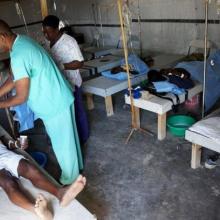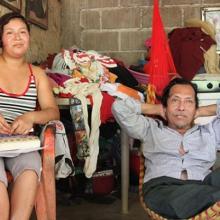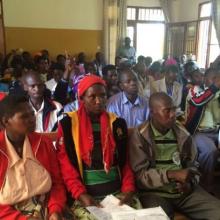Hurricane Matthew’s heavy rains will likely worsen Haiti’s six-year-long cholera epidemic, which has already been categorized as among the world’s worst.
Cholera is a diarrheal disease caused by drinking water or eating food contaminated with the bacterium Vibrio cholera, which is passed through human feces. Haiti’s poor or non-existent sanitation systems create conditions that are ripe for transmitting the disease. There have been an alarming 26,000 reported cases of cholera this year alone.
“We expect lots of cases … hundreds per facility,” Dr. Charles-Patrick Almazor, PIH’s chief medical officer in Haiti, told The Boston Globe.
Cholera is found and spread in places where people have little or no access to sanitation and clean water. Those infected with cholera develop watery diarrhea, vomiting, and leg cramps. They can become dehydrated rapidly, go into shock, and die within 24 hours if they don’t receive care.
Almazor was among those who treated the first cholera patients when the outbreak started near St. Marc in October 2010.
“I worked all night at the hospital with a few colleagues; we were two doctors and six nurses for more than 300 patients who needed IV fluids,” he remembered. “We were overwhelmed by the immensity of this tragedy. Many of those 300 patients died that day. They came too late to the hospital and from too far away to be taken care of by too few providers.”
So far the epidemic has killed nearly 10,000 people.
“Cholera is a good illustration of the vicious cycle of poverty and disease, in which the most vulnerable people are most likely to be victims,” Almazor said.
“In an ideal world, we would have a comprehensive approach for fighting cholera—preventing transmission with clean water sources, hygiene education, and latrine construction. Unfortunately, it will take many years before most Haitians have access to potable water and latrines.”
Your emergency gift will help us supply urgent health care for cholera patients—and all those who will need it most.


